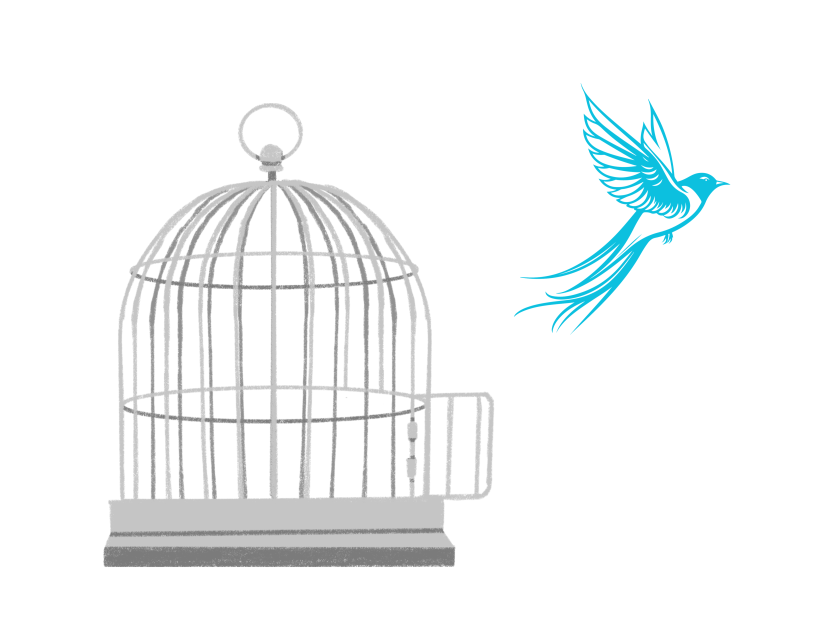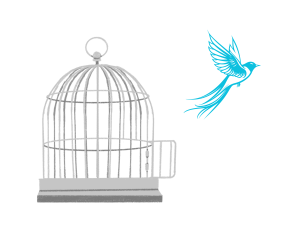
Forgiveness: A One-sided Affair? Walking the Path of Light – Part 5A

As older people, forgiveness of ourselves and others is an important part of walking the path of light rather than the path of darkness. As we have lived long lives full of many experiences, I would safely guess that many of us have accumulated a long list of wrongs and hurts that we have both committed and received. We just can’t get to our age without carting around a considerable amount of baggage. This baggage slows down the progress of our wheel of life, making it sluggish and overburdened. In short, much baggage leads to much unhappiness.
If we are to enjoy our latter years, we need to find a way to deal with all this lest our memories consist mainly of grudges and regrets that weigh us down.
A Personal Example – Bullying in the Church: Part 1
Many years ago, I was severely bullied in a church. I annoyed a group of people greatly with my attitude and practices regarding inclusive children’s ministry. Lies were spread about me and there were attempts to exclude both me and the children from church. When I didn’t give in to said bullying, it became even more severe. Eventually I became acutely depressed. I left that church with my family and some friends, and we joined another more receptive community. However, for a very long time I carried the scars of the bad treatment. Memories of what had happened to me continued to arise unbidden, and I found that time did not, as is often promised, heal all wounds. I needed to do something, but what?
When Memories Arise Unbidden
When we are younger it is possible in the busyness of life to push the grudges away from our awareness and just get on with the business of living. However, once we turn 60, or even a bit younger, memories begin to arise unbidden and unexpected. Some memories are pleasant but others are exceedingly unpleasant. “Where did that come from?” we wonder, as a memory of an argument, a lost opportunity or an old grief pops up and dominates our conscious thought. We feel the pain once more and wish that we didn’t.
How do we deal with this so that we can walk in the light of life, not trudge along in the darkness?
The Bible offers an answer with its emphasis on forgiveness. Consider the Lord’s Prayer, Jesus’ exhortation to forgive a wrongdoer 70 times 7 (Matthew 18:21-22), the tale of the unforgiving servant (Matthew 18:23-35), and the list goes on.
However, we know that some crimes against us, and some that we have committed, may seem unforgivable. For example, the media is full of stories of people who have committed serious offences against those in their care. And what about the murder of a family member? Surely forgiveness in such circumstances is impossible? And what about wrongdoers who are determinedly unrepentant? How are we expected to forgive such people, and why should we?
In order to address some of these concerns I want to examine the nature of forgiveness.
The Hard Work of Forgiveness
At the outset let me make the point that forgiveness is hard work.
I remember two children – a brother and sister. The five-year-old boy hated anyone touching his toys without permission. His mischievous older sister loved to do just that to set him off. One day she went too far fiddling with his toys. After an altercation, their mother insisted that the girl apologise which she did. However, the five-year-old boy summoned up all his wrath, pointed his finger at his sister and roared, “I will NEVER forgive you!”
Forgiveness is hard to learn and hard to do, for kids and for adults.
The Nature of Forgiveness
Let’s examine what forgiveness is and what it is not.
Forgiveness is NOT condoning wrongdoing. It absolutely does not imply that what happened was okay. Some acts are abhorrent.
Forgiveness does NOT minimise that the wrongdoing by suggesting it wasn’t all that bad.
Forgiveness does NOT imply that the recipient of the wrongdoing was in any way to blame for what happened. While there are instances where both parties have contributed to the conflict, each remains responsible for their own behaviour.
Also, perhaps surprisingly, forgiveness does NOT require repentance on the part of the wrongdoer. Although, if the relationship is to be restored, genuine repentance on the part of the wrongdoer is required.
This is because forgiveness is a one-sided affair. It does not necessarily require the other person or group to even know that forgiveness has occurred.
Let’s look at some examples of this phenomenon.
The Cage of Rage
I was watching TV the other night, and to avoid going to bed, I tuned in to a late-night true crime show. The perpetrator of several murders was successfully caught and convicted. One of the victim’s mothers said something along the lines of, “I have forgiven him. That doesn’t mean that I condone what he did, or that what he did doesn’t matter. But I do not wish to live the rest of my life in a cage of rage.”
The woman had made a decision about how that man’s actions would affect the way that she lived the rest of her life.
Cherishing Unforgiveness
Another example comes PD James’ book, The Private Patient.
The perpetrator is caught, pleads guilty and is convicted. The partner of the victim attends the trial and watches as the judge convicts and sentences him. She decides that she while cannot forgive him, at the same time, she will not cherish unforgiveness or find consolation in contemplating his imprisonment. “He could not have lasting power over her without her connivance.”
In these two examples, it can be seen that forgiveness can occur without the involvement of the other party. The one who has been wronged forgives or fails to forgive, regardless of the wrongdoer’s behaviour or attitudes. Forgiveness can occur, even if it is unreceived.
However, when unforgiveness is cherished, the wronged person is harmed afresh every time they think about what happened to them. Their wounds are carried forever, doing more damage each time the memory arises. Forgiveness sets the person free and clears the way for their healing.
A Personal Example – Bullying in the Church: Part 2
Despite many attempts to recover from my bullying experience, I realised I couldn’t do it alone. Eventually, I learned some forgiveness techniques from a professional, and with God’s help, I forgave my persecutors. Many years later, when attempts at reconnection were offered by my former bullies, I was able to relate to them without rancour. This was because the forgiveness on my part had happened long ago. I had been given the privilege of learning how to forgive others. What’s more, I can’t remember the details of the abuse. The wounds simply disappeared.
What were these techniques, and how can Jesus show us how to forgive people?
These will be explored in my next blog – Forgiveness and Walking the Path of Light – Part B.
For a theological discussion on forgiveness, click here.
FOOTNOTES
- The King in the story in Matthew 18:23-35 is not named as God. God is not the one torturing some poor soul even if their meanness is harming another. The King in the story is doing that. I believe that what Jesus is getting at, is the contrast between God’s forgiveness of us for our many failings versus our mean spiritedness if we fail to forgive others and that there are consequences for behaving in that fashion. While Matthew has a fiercely prescriptive approach where he says that God will punish us if we don’t forgive others, I prefer to take a descriptive approach. If we don’t forgive others we will be continue to be tormented by their wrongdoing. It is just how life is. We cannot live full and happy lives if we withhold forgiveness. We torture ourselves. That is what the woman in the TV documentary was talking about when she said that she didn’t want to live in “a cage of rage”.
REFERENCES
P.D. James, “The Private Patient”, 2008 Faber and Faber Ltd.




